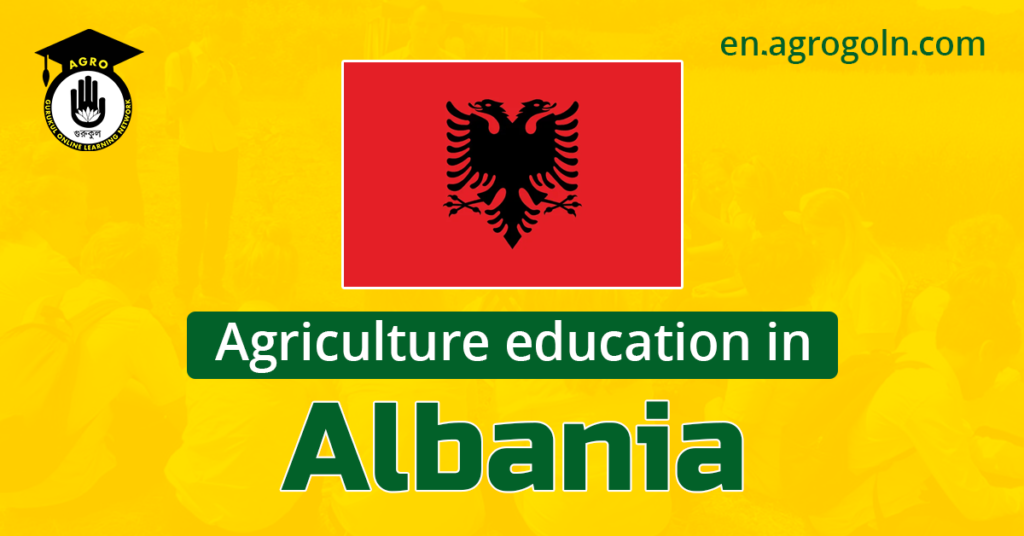Agriculture Education in Albania. is a vital sector in Albania, accounting for a significant portion of the country’s GDP and providing employment for a considerable percentage of the population. Given the importance of agriculture in Albania’s economic and social fabric, agriculture education is crucial in sustaining this sector’s growth and modernization. This article explores the landscape of agriculture education in Albania, its strengths, challenges, and opportunities for growth.
Agriculture Education in Albania
Overview of Agriculture Education
Albania’s agriculture education system primarily consists of formal and informal learning structures. These include vocational and technical high schools, bachelor’s and master’s degree programs in universities, as well as various training programs, workshops, and short courses offered by government agencies, non-governmental organizations (NGOs), and international development organizations.
Vocational and Technical High Schools
Agricultural education in Albania begins at the secondary level with vocational and technical high schools offering agriculture-focused curricula. These schools provide a mix of theoretical and practical training in various areas such as animal husbandry, crop production, horticulture, and agribusiness. The aim is to equip students with fundamental skills and knowledge needed for farming and other agriculture-related vocations.
University Programs
At the tertiary level, universities such as the Agricultural University of Tirana and Aleksandër Moisiu University of Durrës offer bachelor’s, master’s, and doctoral programs in agriculture and related fields. These programs cover more advanced topics including agronomy, veterinary medicine, food technology, agricultural economics, and rural development. The university programs also emphasize research, preparing students for careers in academia, government, and industry.
Training Programs and Workshops
In addition to formal education, various NGOs and international organizations offer training programs and workshops aimed at farmers and agricultural entrepreneurs. These programs focus on practical aspects of farming, such as sustainable farming practices, modern farming techniques, farm management, and marketing. They often target small and medium-sized farm owners, helping them improve productivity and competitiveness.
Strengths and Achievements
Albania has made significant strides in agricultural education over the past decades. The country has established a range of educational and training programs, ensuring that there are learning opportunities for individuals at different stages and with varying interests within the agricultural sector.
Universities and vocational schools in Albania have also made efforts to align their curricula with the changing needs of the agricultural sector. The introduction of courses in sustainable agriculture, organic farming, and agri-tech demonstrate a commitment to keep up with global trends and best practices.
Moreover, international partnerships have been instrumental in enhancing the quality of agricultural education in Albania. Collaborations with universities and organizations from other countries have facilitated knowledge exchange, capacity building, and resource mobilization.
Challenges
Despite these achievements, agriculture education in Albania faces several challenges. One significant challenge is the gap between the skills provided by the education system and the needs of the agricultural sector. Although educational institutions are making efforts to update their curricula, they often struggle to keep up with the rapid changes in the industry, particularly in areas such as agri-tech and sustainable farming.
The lack of practical training is another issue. While theoretical knowledge is essential, the practical skills that come from hands-on experience are equally, if not more, crucial in agriculture. Many schools and universities lack the necessary facilities for practical training, such as modern laboratories and demonstration farms.
Finally, the perception of agriculture as a less desirable career path compared to other fields such as technology, business, or medicine, discourages many young people from pursuing agricultural education. This perception is a significant barrier to attracting fresh talent into the sector.
Opportunities for Growth
The challenges notwithstanding, there are several opportunities for improving and expanding agricultural education in Albania. Firstly, there is considerable potential for incorporating more practical, experiential learning into the curriculum. This could involve partnerships with local farms and agribusinesses to provide internships and apprenticeship opportunities for students.
Secondly, agricultural education can benefit greatly from technology. E-learning platforms can make education more accessible to people in rural areas, while also providing resources for continuous learning. Incorporating agri-tech into the curriculum can also equip students with skills that are increasingly in demand in the modern agricultural sector.
Lastly, increasing awareness about the opportunities and prospects in the agriculture sector can help change perceptions and attract more students. This could involve career guidance initiatives, showcasing successful agri-entrepreneurs, and promoting agriculture as a field that can contribute to solving global challenges such as food security and climate change.
In conclusion, agricultural education plays a critical role in supporting the growth and modernization of Albania’s agricultural sector. Despite facing several challenges, the sector has also shown resilience and adaptability. By capitalizing on the opportunities for growth and addressing the existing challenges, agricultural education in Albania can help build a vibrant, sustainable, and competitive agricultural sector.
See more:
- Agriculture education in Afghanistan
- Agriculture Education in France: Past, Present, and Future
- Agriculture education in the UK
- Agriculture education in the USA
#Agro #Agriculture #AgroGurukul #AgricultureGurukul #GurukulOnlineLearningNetwork

